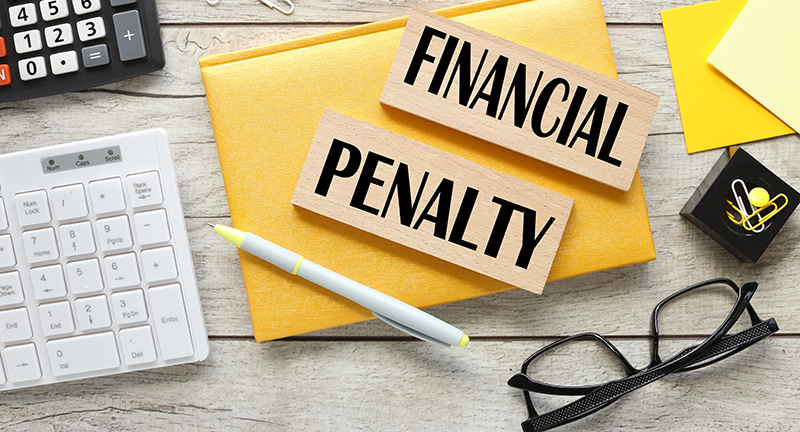All About IRS Penalty Abatement
November 06, 2024 by Kaylie Jonutz
This blog will explore IRS penalties, First Time Penalty Abatement, and penalty relief. Reducing penalties can be complex, and success is not guaranteed. However, with help from the knowledgeable and trustworthy Tax Professionals from TaxAudit’s Tax Debt Relief team, we can determine whether penalty abatement is right for you.
What are IRS penalties and how do I know if I owe them?
You will receive a letter or notice from the IRS telling you which penalties have been assessed on your taxes. The letter or notice will explain the penalty, why you are receiving it, and the necessary next steps to take.
There are several reasons why you might be assessed a penalty from the IRS. You could fail to file or pay your taxes on time, or if you go through an IRS audit, it results in an adjustment to your tax return. You could also be assessed a penalty for various business-related issues or if the IRS believes you committed fraud.
What is penalty abatement and reasonable cause?
Penalty abatement is the process of requesting that the IRS remove the penalties (this is called abatement). To get IRS penalties removed, you need to demonstrate that there is a "reasonable" cause for the IRS to do so. There are multiple ways to establish reasonable cause, for example:
- You relied on advice from a competent tax professional if you gave them all relevant information and followed their guidance.
- The IRS made an error, and your tax return was filed on time or paid on time.
- Exigent circumstances that include, but are not limited to, a family member's death, serious illness, or other urgent situations that have led to mistakes on the tax return or late filing.
How do I request penalty abatement or penalty relief?
If you have a Failure to File or Failure to Pay penalty, received a letter or notice in the mail, and want to request penalty relief, you should first call the number in the top right corner of your notice. In this call, you will need to tell the IRS the penalties you have and why you think the IRS should remove the penalty. By the end of the call, the IRS will tell you whether your penalty was removed. If the IRS rejects your verbal request for penalty relief, you can request the removal in writing through Form 843, Claim for Refund and Request for Abatement.
If the IRS denies your claim, you still have the right to appeal through the IRS Independent Office of Appeals through a conference or hearing. If the IRS continues to deny it, you can pay the penalty amount in full and then formally sue the IRS in district court if you’d like to continue to fight the issue, or you can simply pay the penalty.
The IRS must give you enough time to dispute the penalty; if they attempt to collect the balance early, you have two options. You can request a Collection Due Process Hearing or go through the Tax Court, depending on the type of penalty, as the Tax Court has limited jurisdiction.
Alternatively, if you received a penalty when you were audited, you can dispute this through appeals or Tax Court without having to pay the penalty first.
To read more about penalty relief, visit the IRS website here.
What is First Time Penalty Abatement?
The IRS offers a First Time Abatement policy for penalties if you have demonstrated a history of good tax compliance. You may qualify if you meet the following conditions:
- You did not have a penalty assessed in the three years before the tax year in which you are assessed the penalty.
- You have filed the same return type for the past three tax years.
- You are up-to-date with your tax return filings.
- You do not have any overdue taxes or have a payment agreement for any taxes owed.
You might qualify for relief from one or more tax penalties for a single tax period. If you meet the requirements, you can choose one of the following options:
- Call the IRS using the toll-free number provided on the notice.
- Send a written statement to the IRS
- Send Form 843, Claim for Refund and Request for Abatement.

How Tax Debt Relief can help!
Knowing that various options are available to address your tax issues is crucial when dealing with the IRS. Your Tax Professionals should be open and transparent about the likelihood of successfully removing your IRS penalties. Some less reputable firms may falsely promise to eliminate your penalties and interest, but only interest is usually waived in cases of IRS error.
If you want dependable and trustworthy help with your tax debt, the Tax Debt Relief team at TaxAudit is prepared to assist you. We offer free, no-obligation consultations to evaluate your tax situation and assess whether penalty abatement is right for you. It's important to note that no one can guarantee the removal of an IRS penalty. However, with a well-prepared strategy and a valid explanation of a reasonable case, there is a chance of successfully having penalties removed. For more information, please reach out at 800.922.8348 or click here.




